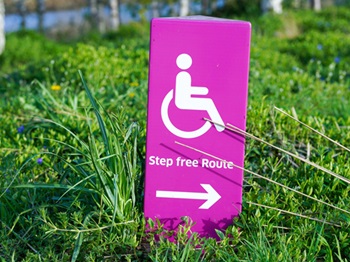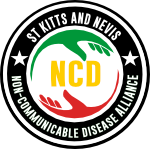- info@sknncdalliance.com
Convention of the Rights of Persons With Disabilities
Last Updated on November 13, 2023
The Convention on the Rights of Persons With Disabilities (CRPD) is an international treaty that seeks to promote, protect, and ensure the full and equal enjoyment of human rights for individuals with disabilities. Adopted by the United Nations in 2006, the CRPD has been a significant milestone in advocating for the rights and wellbeing of people living with disabilities worldwide. St. Kitts and Nevis, recognising the importance of this convention, signed and ratified it in September and October 2019, respectively. This commitment signifies the nation’s dedication to ensuring that the rights of persons with disabilities are upheld.
The Importance of the CRPD
The CRPD is a comprehensive human rights instrument. It aims to create a more inclusive, accessible, and equitable world for individuals living with disabilities. The CRPD consists of several key articles, each addressing specific aspects of the rights and wellbeing of persons with disabilities. Some of the noteworthy articles include:
Article 3 – General Principles: Emphasizes the principles of dignity, autonomy, non-discrimination, full and effective participation, respect for difference, and equality of opportunity.
Article 9 – Accessibility: Highlights the importance of accessibility in various areas of life, including the physical environment, transportation, and information and communication.
Article 19 – Living Independently and Being Included in the Community: Advocates for support and services that enable individuals with disabilities to live independently and participate actively in the community.

Article 25 – Health: Calls for accessible health services and healthcare tailored to the needs of individuals with disabilities.
Article 27 – Work and Employment: Promotes equal employment opportunities and reasonable accommodations in the workplace.
Article 31 – Statistics and Data Collection: Encourages the collection and dissemination of disability-specific data to inform policies and programs.
NCDs and Disability
Non-communicable diseases (NCDs), including conditions like diabetes, cardiovascular diseases, and cancer, are among the leading causes of disability worldwide. These chronic health conditions can result in long-term impairments, affecting an individual’s ability to participate fully in society. Therefore, the St. Kitts and Nevis NCD Alliance is deeply invested in the implementation CRPD and we stand in solidarity with organisations like the Nevis CBR Advocates, St. Kitts-Nevis Association of Persons With Disabilities, and other disability-focused CBOs and NGOs in their pursuit of a more inclusive society for individuals living with disabilities.
Engagement in the UN Report
St. Kitts and Nevis is currently in the process of drafting its UN Report on the CRPD. As part of this important undertaking, the St. Kitts and Nevis NCD Alliance has had the privilege of providing feedback. We believe that our insights as well as the insights of all NGOs can contribute to a more comprehensive and effective report that reflects the challenges and opportunities surrounding disability issues in our country. We hope that feedback received from civil society will be taken into account and reflected in the final report.
Looking Forward
While the CRPD provides a solid foundation for the protection of the rights of persons with disabilities, we encourage St. Kitts and Nevis to take additional steps. We urge the Ministry of Youth Empowerment, Ageing and Disabilities to collaborate with the Attorney General’s office to craft and pass national disability legislation that would enforce the CRPD. Such legislation would strengthen the nation’s commitment to disability rights and promote equity for individuals with disabilities in all aspects of life.
Conclusion
In conclusion, the CRPD is a powerful tool for promoting the rights and dignity of persons with disabilities. St. Kitts and Nevis’ endorsement of the CRPD underscores its commitment to a more inclusive and equitable society. The implementation of the CRPD requires an all-of-society approach with not just the government playing its part but the private sector, faith-based organisations and NGOs ensuring that all corners of our society are accessible to persons living with disabilities. With collaborative efforts, we can create a brighter future for all citizens, regardless of their abilities or health conditions.
Search
Events
ABOUT US
The St Kitts and Nevis NCD Alliance is a coalition of civil society organisations focused on the prevention and control of NCDs through public education, supporting NCD patients, advocating for evidence-based NCD policies and building the capacity of our members.
Add Your Heading Text Here
CONTACT DETAILS
Contact details: 1 869 765 8702 (WhatsApp)
Email address: ncdallianceskn@gmail.com
Email address: ncdallianceskn@gmail.com

